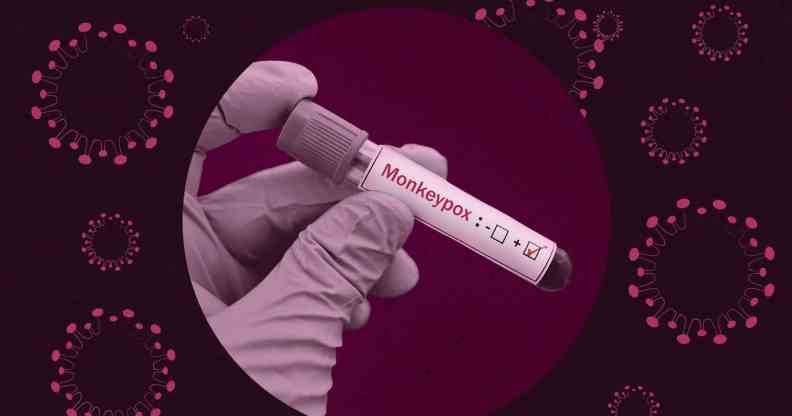Monkeypox-HIV study highlights importance of life-saving treatment

Matthew Hodson, from charity aidsmap, said the study highlights the importance of ensuring people with HIV are diagnosed and have “secure access to treatment”. (Getty)
A study found that monkeypox and HIV “have collided with tragic effects” in cases where people are not on effective treatment.
The study found a majority of US patients hospitalised with severe monkeypox complications had severely weakened immune systems, mostly due to HIV, with a small number dying as result of contracting monkeypox.
Most of the patients were not on treatment for HIV.
Leader of the monkeypox response for the US Centers for Disease Control and Prevention (CDC), Dr Jonathan Mermin, confirmed “monkeypox and HIV have collided with tragic effects”.
Following the discovery, the CDC has urged providers to begin monkeypox treatment as soon as possible for patients with HIV and suspected monkeypox.
The study looked at cases of 52 US patients hospitalised with severe monkeypox complications and found 83 per cent had severely weakened immune systems, mostly due to HIV.
Overall, 47 individuals were infected with HIV, but only four were receiving antiretroviral therapy – powerful drugs that stop the virus from spreading.
The health officials found that 17 patients required treatment in the intensive care unit, and 12 died, including five in which monkeypox was a contributing factor or the confirmed cause of death.
Report has ‘sparked alarm’
Matthew Hodson, executive director of charity aidsmap, told PinkNews that the report “has sparked alarm”.
However, he said it’s important to note that “almost all of the men with HIV were not on treatment and so were not virally suppressed”, while “a third of them had such a weakened immune system it would constitute an AIDS diagnosis”.
Hodson said the study highlights the importance of ensuring people with HIV are diagnosed and have “secure access to treatment”.
“It seems that relatively low levels of HIV treatment access in the US compared to the UK has resulted in poorer monkeypox outcomes for people with HIV, and this has been concentrated among those communities already marginalised.”
Dr Mermin echoed Hodson and said the report is a reminder that “access to monkeypox and HIV prevention and treatment matters – for people’s lives and for public health”.
Sexual health services are at ‘breaking point’
In the UK, sexual health services have called on the new health secretary Steve Barclay to ramp up funding as they are “at breaking point” over monkeypox.
Due to the virus, it currently takes longer for people to get diagnosed with STIs or to access PrEP, a drug that prevents HIV transmission when taken daily.
Dr Claire Dewsnap, president of the British Association for Sexual Health and HIV, told PinkNews that the sector has had to make “really difficult choices” since monkeypox hit the UK due to a lack of funding from the government.
Matthew Hodson added: “Sexual health resources [in the UK] were already overstretched before monkeypox, without greater investment it’s hard to see how these services can be expected to cope”.
“There has been an incredible community response but most of the public health messaging has been provided by sexual health services, charities and individual activists without any government funding.”
The World Health Organization (WHO) declared monkeypox a global emergency – the global health agency’s highest level of alert – in July.

